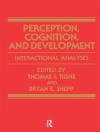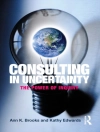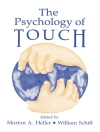Essential Social Psychology introduces you to the core topics in Social Psychology, covering its history, methods, and approaches, as well as helping you grasp key topics such as social influence, group processes, prejudice, friendship, affiliation, and love.
This new edition has a strong emphasis on real-world applications, for example exploring how social psychology was applied during the Covid-19 pandemic. It has been updated to include more in-depth coverage of contemporary topics such as social media, the digital world, as well as social justice topics, such as LGBTQ+ issues in psychology.
This book is ideal for undergraduate students of social psychology.
Richard Crisp is Professor of Social Psychology at Durham University.
Rhiannon Turner is Professor of Social Psychology at Queen’s University Belfast.
Rose Meleady is an Associate Professor in Psychology at the University of East Anglia.
Innehållsförteckning
CHAPTER 1: HISTORY, METHODS, AND APPROACHES
CHAPTER 2: ATTRIBUTION
CHAPTER 3: SOCIAL COGNITION
CHAPTER 4: ATTITUDES
CHAPTER 5: SOCIAL INFLUENCE
CHAPTER 6: GROUP PROCESSES
CHAPTER 7: SELF AND IDENTITY
CHAPTER 8: PREJUDICE
CHAPTER 9: INTERGROUP RELATIONS
CHAPTER 10: AGGRESSION
CHAPTER 11: PROSOCIAL BEHAVIOUR
CHAPTER 12: AFFILIATION AND ATTRACTION
CHAPTER 13: FRIENDSHIP AND LOVE
CHAPTER 14: APPLICATIONS
Om författaren
Rose Meleady is an Associate Professor in Psychology at the University of East Anglia. She did her undergraduate degree, her Master’s degree, and her doctoral research at the University Kent. She took up her current position at the University of East Anglia in 2013. Her research focuses on intergroup processes related to prejudice and discrimination. Her work has explored the benefits of intergroup contact and cross-group friendship for prejudice reduction, and the role of ideological and identity factors in prejudice. Another strand of her work has explored how social psychological research can be applied to promote more environmentally friendly attitudes and behaviour. She has published over 35 articles and chapters, including papers in American Psychologist, Current Directions in Psychological Science, Journal of Personality and Social Psychology, Perspectives in Psychological Science, and Science. Her research has been funded by grants from the Leverhulme Trust and Innovate UK, as well as commercial bodies. She has experience communicating research to non-academic audiences to shape policy and practice and has served as a psychological expert for UK Parliament and UNESCO. She is an associate editor of Group Processes and Intergroup Relations and an editorial board member at the Journal of Theorectical Social Psychology.












